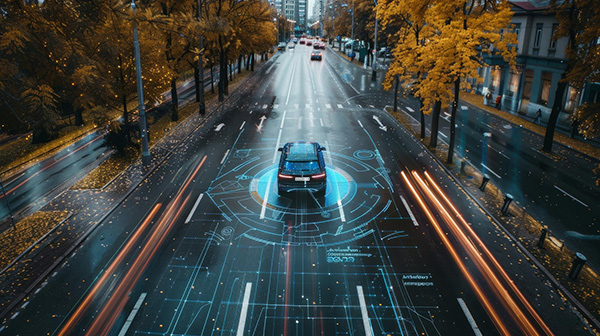23 September 2024 |
Technology companies and automotive firms, united by the autonomous vehicle
Collaboration between automakers and technology companies is accelerating the development of autonomous vehicles, one of the most disruptive innovations of the new economy. The aim is to merge the best of both worlds: the experience of tech firms in Artificial Intelligence (AI), sensors and autonomous driving software, with the mastery in design and manufacture of traditional car brands. The promise of these strategic alliances is safer, more efficient and sustainable transport.
One example is Waymo, a subsidiary of Google's parent Alphabet Inc., which has worked with manufacturers such as Ford and General Motors to integrate their advanced sensor technology and self-driving software into large-scale manufactured cars. Waymo employs cameras, radar, and the LiDAR system, which creates a detailed 3D image of the car's surroundings.
Another initiative is the collaboration between Uber and Toyota, which seeks to implement autonomous technology in vehicles designed specifically for the mobility company's platform. For years, Uber has been developing its self-driving technology to optimize its fleet and reduce reliance on human drivers. In July 2024, it announced plans to work on autonomous vehicles with Chinese electric car manufacturer BYD, reinforcing its commitment to innovation and sustainability.
In addition, Baidu, a Chinese technology giant, promotes the development of autonomous vehicles through the open-source platform Apollo. Manufacturers have access to advanced autonomous driving technologies—such as precise perception systems, simulation, high-definition maps, and intelligent control—allowing them to accelerate their autonomous vehicle projects and reduce costs, by not having to develop these technologies from scratch. In return, Baidu expands its ecosystem and collects valuable driving data that enhances its AI algorithms, accelerates collective innovation, and strengthens its position as a leader in the autonomous vehicle sector.
What are the key points of all these alliances?
- Use of AI and advanced sensors: allow vehicles to identify their surroundings and navigate safely.
- Optimizing car design and manufacturing: Partnerships ensure that autonomous vehicles are technologically advanced, reliable, and safe.
- Innovations in sustainability: The push for electric and autonomous vehicles has the potential to reduce emissions and improve energy efficiency.


